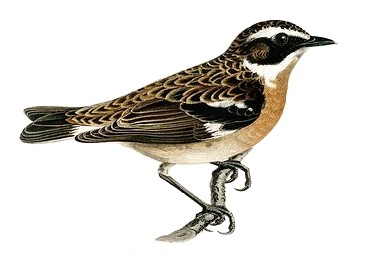
Introduction
Welcome to part 1 of the Poetry Basics series! In this blog series, I will be walking you through the basics of writing poetry and sharing helpful tips that I have picked up from more than ten years of penning poetic pieces.
Today’s post is on Inspiration, Ideas, and Helpful Resources. Let’s hop right into this!
Poetry Inspiration and Ideas
Inspirations come from everywhere. Everything has the possibility to become the subject of a piece of poetry. When looked at from this perspective, inspiration never ceases to abound. Since we all view life from our own distinct perspective, however, each of us is uniquely inspired by our own experiences. Some common poem-sparkers for me are:
Movies
Events
Conversations
Pictures
Food
Poetry
Thoughts
Nature
The Bible
People
Books
Stories
Objects
Seasons
Music
Words
Emotions
Ect.
A lot of my poetic inspirations come from seemingly random places. Sometimes I have a short rhyme in my head, and I just want to refine and expand it. Other times I want to write a poem, but I have no idea what to write about. A quick look around lets me take in my surroundings, giving me a multitude of ideas for my next poetic piece. Sometimes I write about the weather or seasons, and other times I am inspired by a particular object – an empty chair, a birdfeeder, or a bush.
Whenever I am writing a lot of poetry, I have found that I start Thinking Poetic. It is a somewhat subtle change in my mind that makes me always on the lookout for inspiration. Instead of seeing summer clouds as something to shade me from the heat, I see them as “mountains in the sky.” The best way to achieve this unique point of view is to practice looking at things from a poetic viewpoint.
There are always times, however, when inspiration seems to fail us. Every writer knows what it is like to have writer’s block. When I am struggling with writer’s block, I write about it. I turned out one of my favorite shorter pieces while I had writer’s block:
Blank Out
by Natalie Claire
Well, to be quite honestly frank,
My mind’s gone entirely blank.
I just stare at the clock,
Cause I’ve got writer’s block,
Not a thing on which I can bank.
Good reader, heed what you’re reading,
And give me the push that I’m needing,
An inspiring source,
Is most welcomed, of course,
To get my grey cells stampeding.
Soon after writing the limerick above, I could feel myself slowly beginning to overcome my writer’s block. Still inspired by my resent predicament, however, I wrote another piece on the topic before finally pushing past my bout of blockage:
Blessing in Disguise
by Natalie Claire
I attended a talk about writer’s block,
And how one can overcome it.
But try as I may, it just won’t go away;
I can’t seem to tear myself from it.
Most peculiar, I know, but I can’t let it go.
Somehow it flavors my style.
For when faced with a fight, things turn out alright,
And me with a write and a smile!
Inspiration comes from anywhere and everywhere. And the more you look for it, the easier it will be to find. So start looking for inspiration in everything you do – it is just waiting to be discovered. And once you have the inspiration and idea for your poem, you’re ready to start penning your piece.
Before I start talking about the actual writing of the poem, however, I’d like to share some resources that I have found helpful while writing poetry – specifically rhyming poetry.
Helpful Poetry Resources
When writing poetry, I’ve found several resources extremely helpful. For rhyming, my favorite source is RhymeZone. This site is more than just a rhyming dictionary, it also has synonyms, antonyms, near rhymes, and more. While this is my favorite site, it is definitely not without its flaws – such as sometimes saying that words rhyme when they don’t. Also, as with all word resources, not ever word is going to be one that should be used.
I have also used Merriam-Webster’s Rhyming Dictionary, although I do not reference it very often. I like to use it when I cannot access RhymeZone. Since I have it as a physical copy, I can also bring it with me on road trips, if, for some reason, I feel like writing poetry. This book does have a few downsides that keep me from using it more often:
- Not a large selection of words.
- A little hard to navigate through.
- Hard to keep open.
My siblings steal it and hide it in places I can never find.
In addition to some kind of rhyming dictionary, it is also very helpful to have a dictionary and thesaurus nearby. My personal preference is Webster’s Thesaurus and a collegiate dictionary, but you can do whatever works best for you!
Conclusion:
Inspiration can be found everywhere, but the more you look, the easier it will be to find. So start looking today! And when it comes to writing poetry, it is useful to have a dictionary, thesaurus, and rhyming dictionary nearby.
So what are your thoughts?
Where do you look to find inspiration?
Do you enjoy reading or writing poetry?

P.S. You can also follow me at my other blog, Kenmore Pines 1, here.
To learn more about this blog check out my blog launch post here.

I loved reading your two poems! They’re great! <3
Thanks, Ellen! Glad to hear that!
Using a few of my ideas I see!
I can neither confirm nor deny that. 😉